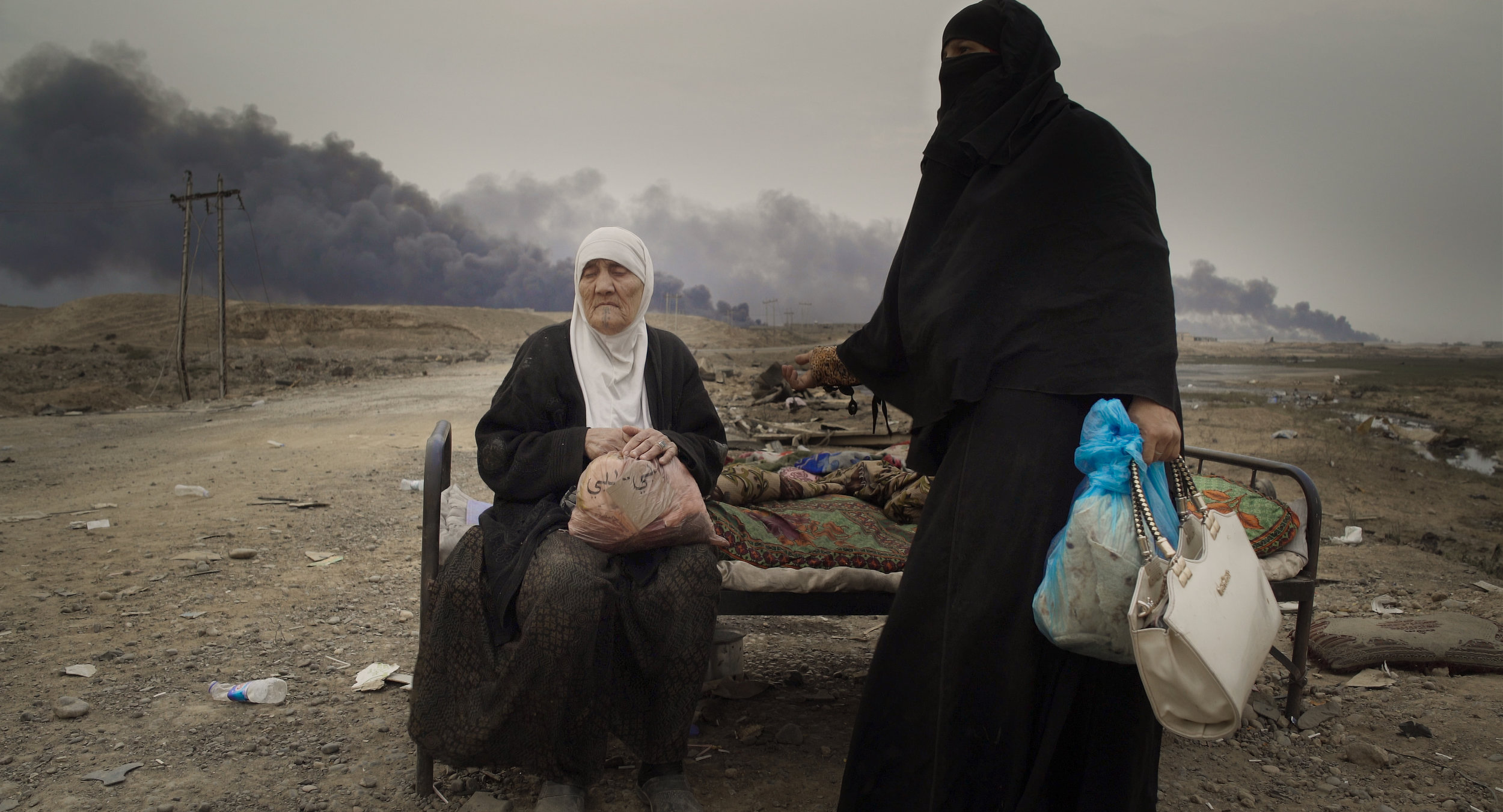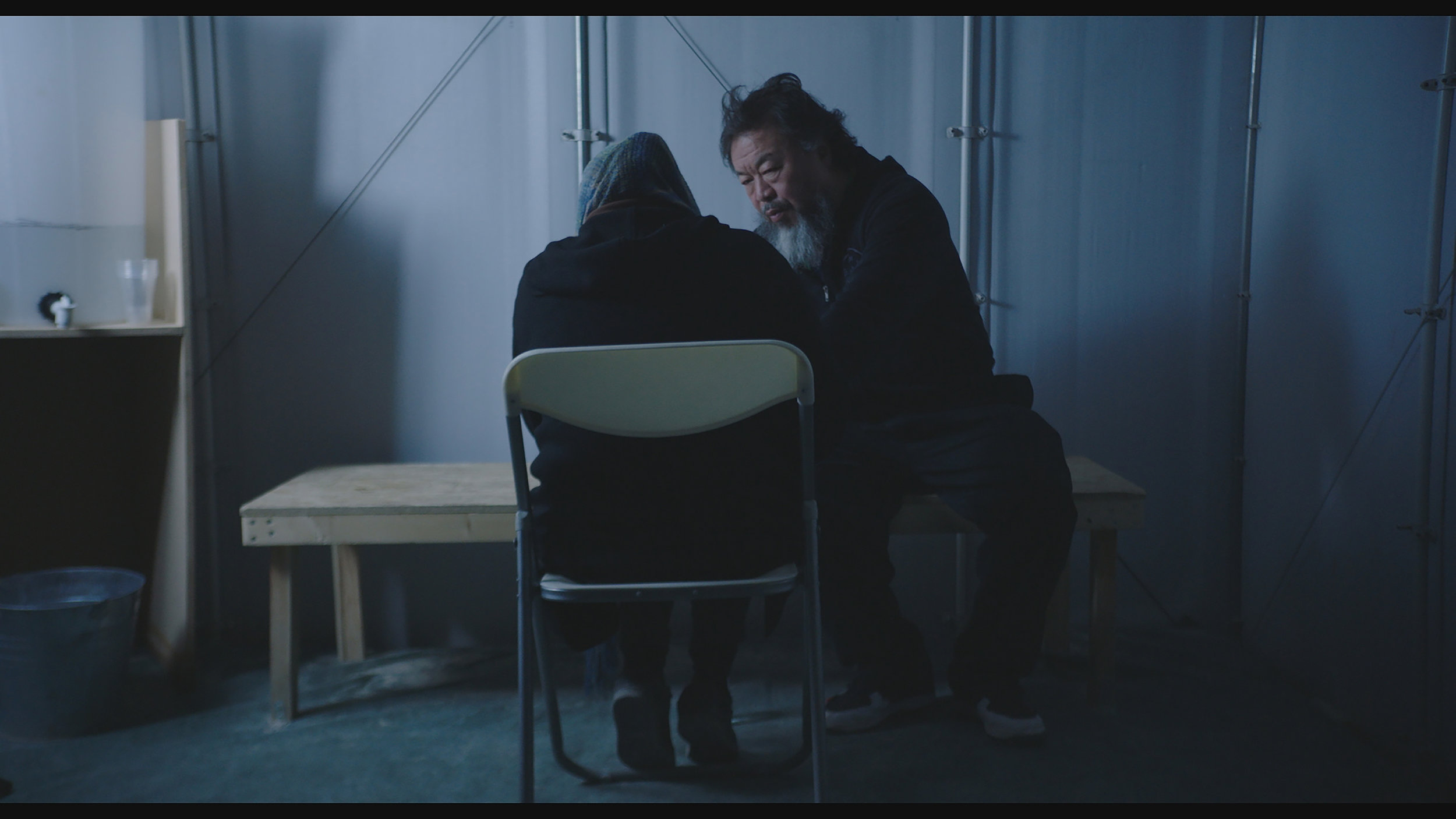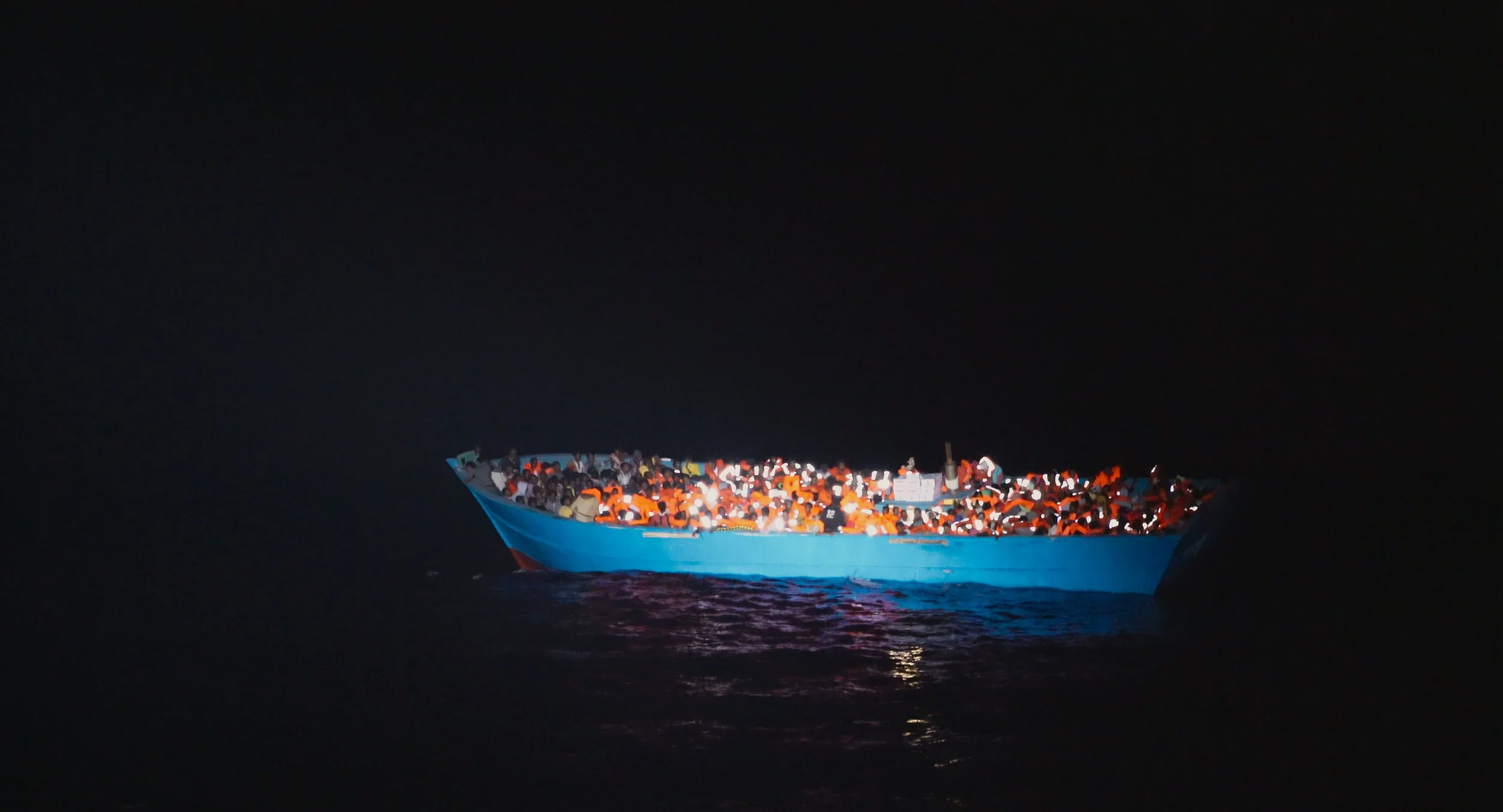A Year On, Ai Wei Wei's Refugee Doc, Human Flow, Is More Relevant Than Ever
A scene from Human Flow. Courtesy of © Amazon Studios
By Matt Fink
Last week, on a gusty afternoon of spotless blue skies, the global refugee crisis arrived on the Upper East Side, roosting beneath the looming shadow of the Queensboro Bridge. However, its coming was heralded not by the wails of children or the echo of white supremacist gun fire - nor the mendacious fear-mongering of a presidential usurper - but by the soft tinkle of glass and restrained clatter of silver cutlery against ceramic dinnerware. Hundreds of battle-scarred donors - members, mainly, of NGO Refugees International - sat lunching at round tables in Guastavino’s, a vaulting event space integrated with the supports of said bridge’s Manhattan terminus. The event: the 16th Annual “New York Circle: Act for Refugees.” It’s guest of honor: no less an eminence than Chinese artist/activist Ai Weiwei, there to be interviewed by David Remnick - editor-in-chief of the New Yorker and essentially Jewish Elvis for many of the event’s attendees - and to stump for his 2017 documentary about refugees, Human Flow.
Artist and director Ai Weiwei, left. Courtesy of © Amazon Studios
An old woman in Bangladesh. Courtesy of © Amazon Studios
The genesis for Human Flow - one whose irony the 61-year-old artist was quick to point out - was a 2015 vacation to Lesbos Weiwei took with his son. He had gone to the sunny Greek island following a four-year stint, widely publicized and lambasted by the international community, as a prisoner of the Chinese government, having made it his business to be a thorn in the side of the establishment since his career as an artist began in the mid-1980s. There, on an idyllic Mediterranean beach, he documented on his iPhone the arrival of refugees fleeing lands convulsed by war and poverty: Syria, Libya, Iraq, Sudan. From that point on he and the crew he subsequently assembled rarely stopped shooting, capturing within a year a 20-country panorama of human suffering the scope and depth of which is hard to imagine.
The film’s appeal for human decency will no doubt fall on deaf ears in many quarters, no more so than that of the current U.S. administration, whose umber grotesque of a leader has done the utmost to play on his electorate’s tendency towards xenophobia and isolationism.
A group of children in Ain al-hilweh, a Lebanese refugee camp for Palestinians. Courtesy of © Amazon Studios
Mother and son in Shariya camp, Iraq. Couresty of © Amazon Studios
Two women pictured in Mosel, Iraq. Courtesy of © Amazon Studios
While Trump stands out from the crowd in the flamboyant manner with which he whips up civic hysteria, he is hardly alone; his hateful, ketchup-flecked bloviations have counterparts - sans ketchup, probably - in several nations, including Italy and Hungary, and now Brazil, whose recently elected president Jair Bolsonaro has upped the ante spectacularly for career demagogues worldwide.
In this context of increasingly corrosive bigotry around the globe - which seems to be rising daily with the speed of a soufflé - comes Ai Weiwei and his film.
A scene from Human Flow. Courtesy of © Amazon Studios
Ai Wei Wei, right, speaks to a refugee. Courtesy of © Amazon Studios
While in the main a mournful, elegiac work, Human Flow comes to a few well-earned emotional pitches of fever, no more so than during an episode which sees Weiwei’s camera following an Afghan refugee in Turkey to the crude countryside graveyard where five of the 17 family members with whom he fled are buried. In anguished tones the man rages that “They appear in my dreams at night - I see them in my sleep and they tell me what to do. But what am I supposed to do??”
The filmmaking here, and in other instances, is admirably restrained, reflecting, perhaps, Weiwei’s interest in avoiding unseemly emotional manipulation. It should be mentioned, too, that Human Flow doesn’t pretend to offer a detailed road map of policy solutions to the seemingly intractable, Hydra-like morass that is the refugee crisis; he is, after all, an artist, not a politician. The film is, rather, a plea to us, the privileged multitudes observing the ever-worsening crisis from on high: that we allow in our hearts room for the most basic of human emotions, empathy - and that we act on it, rather than allow ourselves to be rendered immobile by the morphine of despair.
“You can see this man is deeply saddened, but he has no tears,” said Weiwei in a recent interview, referring to the above-mentioned film clip. “As humans, we can imagine [the man’s buried family members] are our brothers, our sisters. If [his grief] doesn’t say anything to us, we have to ask ourselves: who are we?”
Back at Refugee International’s charity event below the Queensboro Bridge, Ai Weiwei, sitting with Mr. Remnick before a sea of ascots and broaches, asked essentially the same question, taking to task even those do-gooders who nonetheless partake in a capitalist system which continues to do business with those governments whose actions have contributed to the present refugee crisis. Nobody’s hands, he implied, are clean of blood.
A scene from Human Flow. Courtesy of © Amazon Studios
Refugees walking near Idomeni Camp, Greece. Courtesy of © Amazon Studios
To learn more about Human Flow and the issues raises therein, go to its website, and to aiwewei.com for more information about the artist.

















